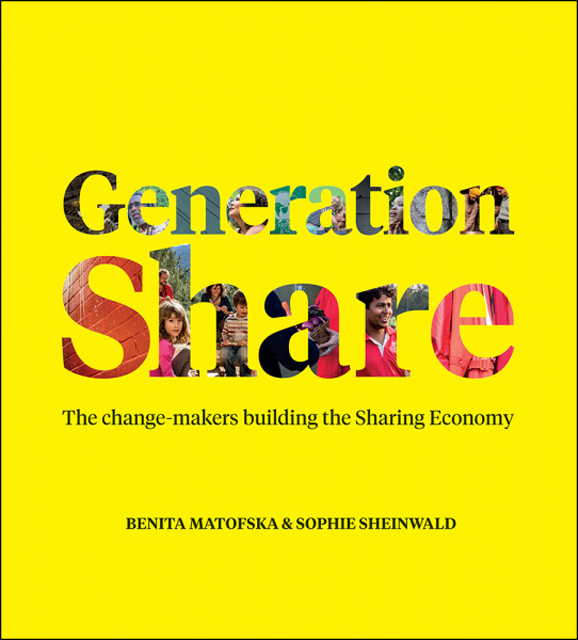Book contents
- Frontmatter
- Dedication
- Miscellaneous Frontmatter
- Contents
- Our Sponsor
- What Is The Sharing Economy?
- Does Age Matter?
- Sharing By Gender
- Sharing The City
- Sharing The Countryside
- Sharing The Money
- Is Sharing Cultural?
- Sharing And Disability
- The Geography Of Sharing
- Conclusion
- Notes
- Generation Share demonstrates the power of Sharing. The change-makers show just what’s possible – now it’s your turn. What can you share? How can you make a difference?
Is Sharing Cultural?
Published online by Cambridge University Press: 14 October 2022
- Frontmatter
- Dedication
- Miscellaneous Frontmatter
- Contents
- Our Sponsor
- What Is The Sharing Economy?
- Does Age Matter?
- Sharing By Gender
- Sharing The City
- Sharing The Countryside
- Sharing The Money
- Is Sharing Cultural?
- Sharing And Disability
- The Geography Of Sharing
- Conclusion
- Notes
- Generation Share demonstrates the power of Sharing. The change-makers show just what’s possible – now it’s your turn. What can you share? How can you make a difference?
Summary
Whether it is how you bring up your children, or how you come together over a meal, culture is all about sharing. If we can remind people of that, tap into that, then we’re onto something.
Shaff Prabatani, Sharer, UK
Through inter-cultural sharing, we are able to learn and understand different cultures and the diversity of humanity.
Ji Hae Kim, Sharer, South Korea
The different meanings of the word ‘culture’ demonstrate that it is inextricably linked to Sharing. One can’t exist without the other. Whether culture means the arts and other expressions of ‘human intellectual achievement regarded collectively’ or ‘the ideas, customs and social behaviour of a particular people or society’ (for example ‘Jewish culture’), Sharing is intrinsic. Perhaps, as social psychologist Geert Hofstede suggested, culture is either stuff made by humans (music, painting, folklore…) or ‘software of the mind’, a collective phenomenon shared with people who live in the same environment. Arguably, any culture is a system of shared meanings; it can’t exist in isolation, it’s a way of thinking, feeling and knowing about the world. It’s a shared ‘web of significance that we have spun for ourselves’.
So do different religions, regions and communities view Sharing contrarily? When it comes to Sharing, do they have and practice different cultural norms? Are some societies more sharing than others? In a Sharing world, our cultural norms, traditions and creative activities root themselves in collaboration, cooperation and community. This is an ecosphere far away from inequality, poverty and hyper consumption. For a Sharing culture to be mainstream, a significant shift is required. It’s about changing our value system, from me to we, from consumer to user and from owner to co-operator. In a Sharing society, sustainability supersedes selfishness and inclusivity is vital, as Ghandi said, ‘No culture can live if it attempts to be exclusive.’
Culture could be considered as the foundation of sustainability. A Sharing civilisation that is built on the values of justice, equity and solidarity, whose ultimate purpose is to achieve individual, social and environmental durability, would need new social organisations, economic models and new forms of collaboration between individuals and community, public and private. Perhaps what’s needed is ‘a new economy of culture’?
- Type
- Chapter
- Information
- Generation ShareThe Change-Makers Building the Sharing Economy, pp. 211 - 242Publisher: Bristol University PressFirst published in: 2022



